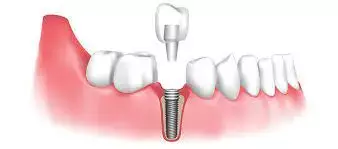- Home
- Medical news & Guidelines
- Anesthesiology
- Cardiology and CTVS
- Critical Care
- Dentistry
- Dermatology
- Diabetes and Endocrinology
- ENT
- Gastroenterology
- Medicine
- Nephrology
- Neurology
- Obstretics-Gynaecology
- Oncology
- Ophthalmology
- Orthopaedics
- Pediatrics-Neonatology
- Psychiatry
- Pulmonology
- Radiology
- Surgery
- Urology
- Laboratory Medicine
- Diet
- Nursing
- Paramedical
- Physiotherapy
- Health news
- Fact Check
- Bone Health Fact Check
- Brain Health Fact Check
- Cancer Related Fact Check
- Child Care Fact Check
- Dental and oral health fact check
- Diabetes and metabolic health fact check
- Diet and Nutrition Fact Check
- Eye and ENT Care Fact Check
- Fitness fact check
- Gut health fact check
- Heart health fact check
- Kidney health fact check
- Medical education fact check
- Men's health fact check
- Respiratory fact check
- Skin and hair care fact check
- Vaccine and Immunization fact check
- Women's health fact check
- AYUSH
- State News
- Andaman and Nicobar Islands
- Andhra Pradesh
- Arunachal Pradesh
- Assam
- Bihar
- Chandigarh
- Chattisgarh
- Dadra and Nagar Haveli
- Daman and Diu
- Delhi
- Goa
- Gujarat
- Haryana
- Himachal Pradesh
- Jammu & Kashmir
- Jharkhand
- Karnataka
- Kerala
- Ladakh
- Lakshadweep
- Madhya Pradesh
- Maharashtra
- Manipur
- Meghalaya
- Mizoram
- Nagaland
- Odisha
- Puducherry
- Punjab
- Rajasthan
- Sikkim
- Tamil Nadu
- Telangana
- Tripura
- Uttar Pradesh
- Uttrakhand
- West Bengal
- Medical Education
- Industry
Upto 10% of patients receiving dental implants develop postoperative infections: Study

Four to 10% of patients receiving dental implants develop postoperative infections, suggests a study published in Implant Dentistry.
A study was conducted to determine the prevalence and describe the clinical features and treatment of patients with early infections after implant placement.
Since Brånemark defined osseointegration in the mid-1960s, oral rehabilitation has dramatically changed because of the introduction of dental implants. Although the survival rate of osseointegrated implants is high, both short- and long-term complications may occur. Postoperative wound infections are one of the major concerns for patients and surgeons, as they might hamper osseointegration and lead to an early implant failure. Two recently published meta-analyses have shown that the prophylactic use of antibiotics seems to decrease the implant failure rate. However, these agents did not seem to significantly reduce the incidence of postoperative infections. A retrospective cohort study was performed. Postoperative infections were defined as the presence of purulent drainage and/or increasing pain and swelling in the operated area before prosthetic loading. Patient-based infection prevalences and 95% confidence intervals for implant were determined. Patients who healed were followed up to determine implant survival and success rates.
The results of the study are:
Three hundred thirty-seven participants (1273 implants) were included. Twenty-two postoperative infections were recorded (6.5% of the patients and 1.7% of the implants). These complications were usually diagnosed within the first month, and in 17 cases (77.3%) surgical treatment was performed because of antibiotic therapy failure. Twelve implants (54.6%) in 12 patients (54.6%) failed before prosthetic loading. The survival and success rates of the infected loaded implants were 80% and 50%, respectively, with a mean follow-up of 42.9 months (SD of 10.2 months).
Thus, four to 10% of patients receiving dental implants develop postoperative infections. This complication is important because applied treatments are usually ineffective and two-thirds of the infected implants fail, most before prosthetic loading.
Reference:
Postoperative Infections After Dental Implant Placement: Prevalence, Clinical Features, and Treatment by Camps-Font, Octavi et al. published in the Implant Dentistry.
Dr. Shravani Dali has completed her BDS from Pravara institute of medical sciences, loni. Following which she extensively worked in the healthcare sector for 2+ years. She has been actively involved in writing blogs in field of health and wellness. Currently she is pursuing her Masters of public health-health administration from Tata institute of social sciences. She can be contacted at editorial@medicaldialogues.in.
Dr Kamal Kant Kohli-MBBS, DTCD- a chest specialist with more than 30 years of practice and a flair for writing clinical articles, Dr Kamal Kant Kohli joined Medical Dialogues as a Chief Editor of Medical News. Besides writing articles, as an editor, he proofreads and verifies all the medical content published on Medical Dialogues including those coming from journals, studies,medical conferences,guidelines etc. Email: drkohli@medicaldialogues.in. Contact no. 011-43720751


